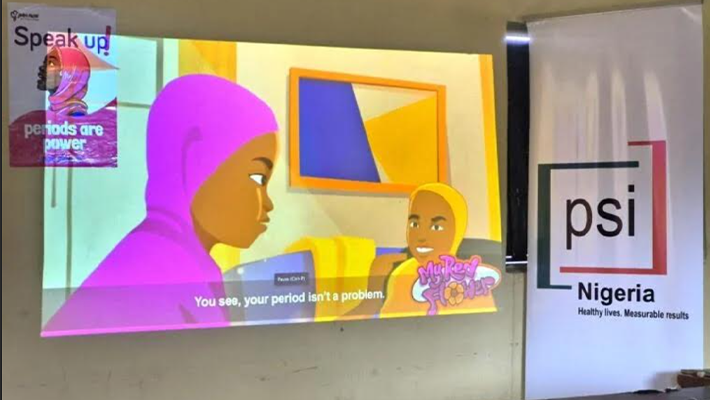Population Services International (PSI) Nigeria, through its Menstrual Health and Hygiene—No Wahala (MH-NoW) project, has launched two culturally relevant audio-visual materials aimed at promoting menstrual health awareness, reducing stigma, and encouraging positive hygiene practices among adolescent girls and young women.
PSIN Communication and Training Specialist, Temitope Alfred, in a statement explained that the audio-visuals, titled: “My Red Flower” and “Menstruation with Dignity,” were produced in Hausa and pidgin English to reach diverse audiences across Nigeria.
She added that both are subtitled in English to enhance inclusivity and understanding among national and international audiences.
According to PSI Nigeria, the videos reflect real stories and voices of girls and women, serving as powerful tools for education and behavioral change, noting that, through storytelling and relatable imagery, the materials seek to spark open conversations, challenge taboos, and promote menstrual equity and dignity.
She further highlighted that, the launch activities were held in Nasarawa and Akwa Ibom States, where the audio-visuals were introduced in secondary schools and community settings.
“The sessions also demonstrated how the materials can support dialogue and health education among students, teachers, and community champions.
Read also:
- Presidency debunks allegations of lopsided appointments, reaffirms commitment to fair representation, national unity
- From Wine Cork to Life-Saving Invention: How Odon device is transforming Childbirth Worldwide
- NSITF partners PHCCIMA to strengthen Employee Compensation Scheme
“At Government Secondary School, Akwanga, one student said that “the video helped me overcome the fear and shame around menstruation.
“Similarly, Eno Ekpo, Principal of Goretti Girls College, Akwa Ibom, described the project as groundbreaking, noting that it encourages open discussion on menstruation, once considered a taboo.
“A male teacher also commended the initiative, describing it as timely and beneficial, while a community menstrual health champion in Akwa Ibom said the materials have strengthened her advocacy efforts.
PSI Nigeria stated that the audio-visuals will continue to serve as strategic tools for health education, stigma reduction, and community engagement, helping girls manage menstruation with confidence and dignity.






